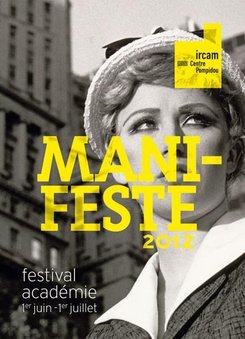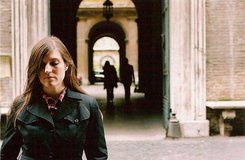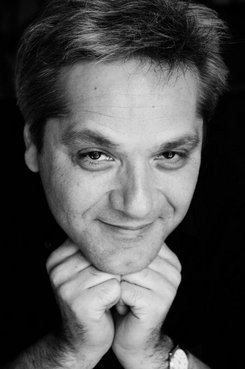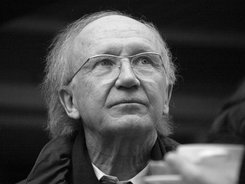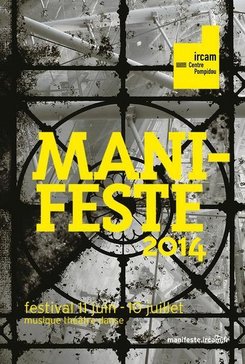Show
ManiFeste 2013
29 May - 30 Jun 2013
29 May - 30 Jun 2013
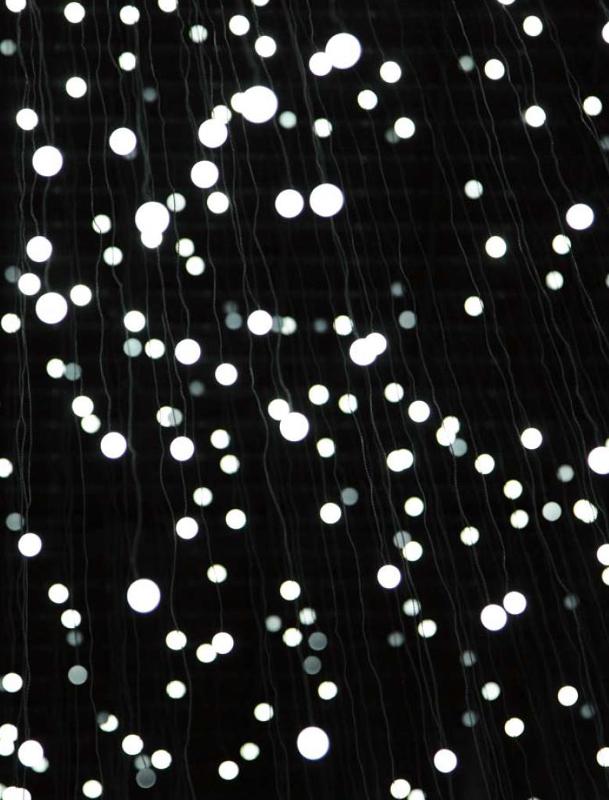
The event is over

International festival and multidisciplinary academy, ManiFeste-2013 returns music to the heart of “temporal arts”. For one month, composers, performers, directors, actors, film-makers, choreographers and dancers take part in ManiFeste-2013 on the editing of reality, technology integrated in the body and the voice.

Interview by Frank Madlener, Director of Ircam
International festival and multidisciplinary academy, ManiFeste-2013 returns music to the heart of “temporal arts”. For one month, composers, performers, directors, actors, film-makers, choreographers and dancers take part in ManiFeste-2013 on the editing of reality, technology integrated in the body and the voice.
Interview with Bruno Tackels, philosopher and playwright.
FRANK MADLENER – You have long observed the emergence of “écrivains de plateau” (stage writers), artists who, like Gisèle Vienne and François Verret, today join up with Ircam.
BRUNO TACKELS – Considering the stage as a page on which we write collectively is one of the characteristics of an écrivain de plateau. This idea was highly visible during iconic festivals, like in Avignon in 2005. The authority of the director “in service to the text” was challenged by the multiplicity of disciplines simultaneously exhibited or “staged” […]. A loss of meaning? In reality, the écrivain de plateau does not contest the writing but the anteriority of the text on the apparatus and on the set. I see it as a European phenomenon dating back to Tadeusz Kantor or Robert Wilson. I was struck by François Verret's sound direction, with the unforgettable presence of Jean-Pierre Drouet, percussionist-actor-improviser. With Vienne, I feel her proximity to Kantor, in the relationship between the animated and the inert, the dead and the living. The puppets are more alive than the actor; there are elements of the readymade, the object found on stage, so important in the visual arts.
FM – By means of the editing process, thanks to real-time tools, the “most natural” and the most intimate, the voice today is combined with artifice: transformation, change of expressions, becoming animal, mixing with archive… There is immense potential for opera, theatre, dance, the visual arts and even the cinema.
BT – But this venture was launched by the Ancient Greeks, in the tragedy supported by the artifice of the mask! Presence, body and technology must not be in opposition. Today, we tweet at parliament. Who could have believed that parliament would rediscover one of its original functions through technology? And if theatre had to die in the cause of cinema, that would have happened. In fact, theatre absorbed everything, all the apparatus, including the role of editing. There is no reason why the live show should not be contaminated by the infinite effects of technology, which brought into crisis the idea of the creator and the absolute distinction between “transmitter and receiver”. In 1935, Walter Benjamin was a complete visionary. His “flâneur”, subjected to the multiple shocks of the city, whose life is a montage of heterogenic moments, is one who today navigates in the digital spaces. Even before the internet, this thinking referred to us.
Where
When
29 May - 30 Jun 2013
every days except tuesdays